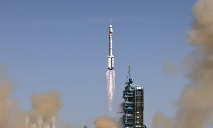ASEAN must uphold neutrality, centrality at Shangri-La Dialogue: Malaysian analysts
KUALA LUMPUR, June 10 (Xinhua) -- Members of the Association of Southeast Asian Nations (ASEAN) must continue to emphasize the centrality of the bloc to ensure a stable and conducive environment for continued post-pandemic recovery, according to Malaysian analysts.
They cautioned members of the 10-nation bloc from bowing to pressure, particularly from the United States, as the country seeks to draw countries into its camp as part of political maneuvers against its rivals over a range of trade and security issues during the dialogue held in Singapore from Friday to Sunday.
Roy Anthony Rogers, senior lecturer with the Department of International and Strategic Studies at the University of Malaya, said the United States and its allies are likely to push its line on the situation in Ukraine and its ambitions in the region through its so-called Indo-Pacific Economic Framework.
He said the United States would like to come back in a "more assertive manner" after neglecting Southeast Asia during the Trump administration, and their ambassador position to ASEAN had been left vacant for a couple of years.
Roy Anthony said the ASEAN countries are less interested in taking sides, especially over geopolitical alliances and are more interested in the productive economic cooperation they have been enjoying with China and would be unlikely to change their stand.
"We can have dialogue with external partners, such as the U.S., China, the United Nations. But at the end of the day, ASEAN should be the mover. That's why we say the centrality of ASEAN and not let an external power overshadow ASEAN," he said.
"The ASEAN leaders are trying to get support, externally or internationally, (on) how to build up its economy. And, you know, this is their main concern, not so much of the geopolitics rhetoric, and it appears that China has been able to fulfill that request or desire of the ASEAN leaders," he said, adding that China has also played a key role in delivering aid to countries in the region during the pandemic.
Lee Pei May, a political expert at the International Islamic University Malaysia, said the dialogue could be a good platform for all participants to raise their concerns and seek common ground for cooperation but would be instead used by the United States and its allies as a tool for lobbying for support.
Nevertheless, the participation of other countries such as China will mean that ASEAN countries will have the opportunity to hear the policies and positions of these countries as well.
"I think the U.S. would, again, try to urge ASEAN to really consider, you know, working more closely with the U.S.," she said.
Launched by the British think tank International Institute for Strategic Studies and the Singaporean government in 2002, the Shangri-La Dialogue is a major defense forum in Asia attended by representatives from around the world.
Photos
Related Stories
- China, Malaysia vow to safeguard ASEAN-centered regional cooperation framework
- ASEAN needs to strengthen centrality, unity, solidarity: Cambodian FM
- U.S.-led IPEF threatens ASEAN centrality, unity: Cambodian academic
- ASEAN leaders call for open, integrated trade in Asia as Japan woos region over US-led IPEF
- Interview: U.S.-led IPEF risks fomenting divisions among ASEAN countries, warns Philippine analyst
Copyright © 2022 People's Daily Online. All Rights Reserved.









